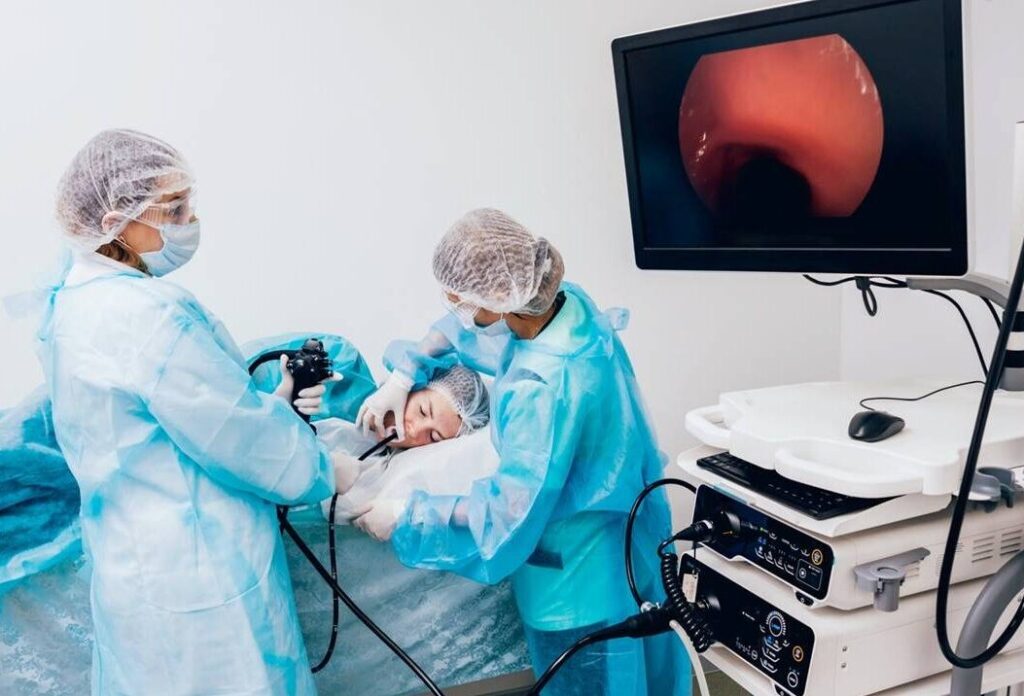Gastroenterology (GI Scopy) in Nashik

Gastroenterology (GI Scopy)
Gastroenterology is a branch of medicine that focuses on the digestive system and its disorders. It encompasses the study, diagnosis, and treatment of conditions affecting the gastrointestinal (GI) tract, which includes the esophagus, stomach, intestines, liver, pancreas, and gallbladder.
Key Aspects of Gastroenterology:
Digestive System Disorders: Gastroenterologists treat a wide range of conditions, including:
- Gastroesophageal Reflux Disease (GERD): Chronic acid reflux causing heartburn and potential damage to the esophagus.
- Peptic Ulcers: Sores that develop on the lining of the stomach, small intestine, or esophagus.
- Inflammatory Bowel Disease (IBD): Includes Crohn’s disease and ulcerative colitis, which involve chronic inflammation of the digestive tract.
- Irritable Bowel Syndrome (IBS): A functional gastrointestinal disorder characterized by abdominal pain and changes in bowel habits.
- Liver Diseases: Such as hepatitis, cirrhosis, and fatty liver disease.
- Pancreatic Disorders: Including pancreatitis and pancreatic cancer.
Endoscopic Procedures: One of the key tools in gastroenterology is endoscopy, which involves using a flexible tube with a camera (an endoscope) to visualize and sometimes treat conditions within the digestive tract. Common types of endoscopic procedures include:
- Upper Endoscopy (Esophagogastroduodenoscopy or EGD): Examines the esophagus, stomach, and duodenum. It is used to diagnose conditions like ulcers, tumors, or bleeding.
- Colonoscopy: Examines the colon (large intestine) and rectum. It is used for screening for colorectal cancer, diagnosing IBD, and evaluating symptoms like bleeding or chronic diarrhea.
- Sigmoidoscopy: Similar to a colonoscopy but examines only the sigmoid colon and rectum. It is often used for screening and diagnosis.
- Endoscopic Retrograde Cholangiopancreatography (ERCP): Used to diagnose and treat conditions of the bile ducts and pancreas, such as bile duct stones or pancreatic duct obstructions.
- Endoscopic Ultrasound (EUS): Combines endoscopy with ultrasound to obtain images of the digestive tract and surrounding organs, useful for assessing tumors or pancreatitis.
Diagnosis and Treatment: Gastroenterologists use various diagnostic tests in addition to endoscopy, including:
- Imaging Studies: Such as abdominal ultrasound, CT scans, and MRI to visualize internal organs.
- Biopsy: Taking tissue samples during endoscopy to diagnose conditions like cancer or infections.
- Laboratory Tests: Blood tests, stool tests, and breath tests to assess digestive function and diagnose diseases.
Focus: The aim of gastroenterology is to manage and treat disorders of the digestive system, improve digestive health, and address symptoms such as pain, bleeding, and dysfunction. It often involves both medical management and minimally invasive procedures to provide comprehensive care.
Overall, gastroenterology is a vital field dedicated to understanding and treating a wide range of digestive system disorders, using advanced diagnostic and therapeutic techniques to enhance patient health and quality of life.

